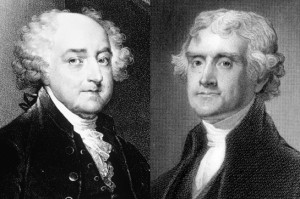That’s the Way It Was — and Is
When I was studying journalism at UW-Madison, we would sometimes end our day at Vilas Hall by grabbing a cold one at a nearby tavern on University Avenue. Bob and Gene’s is no longer there, but a particular memory remains. One of the television sets at the bar was tuned each night to the CBS Evening News, and when anchorman Walter Cronkite came on the air, the place got quiet and remained that way until Cronkite’s signature standoff: “and that’s the way it is.” On the heels of Watergate and a long war that threatened to tear the nation apart, there was a sense that we had witnessed history.
We witnessed history again in Wisconsin last year, and this time it threatened to tear the state apart. One year ago—June 5—Wisconsin went to the polls in the recall election for Governor. The protests of 2011 had been replaced by a political movement aimed at ousting Governor Scott Walker from office. It was an election that divided not just Republicans and Democrats, but friends and families, some of whom simply stopped talking about politics rather than run the risk of a nasty argument. Bitter and contentious, there was little middle ground. In the waning days of the race between Governor Scott Walker and Milwaukee Mayor Tom Barrett (a rematch of 2010), the Law School found itself in the middle of the fray. We released our final Marquette Law School Poll of the election cycle, showing Governor Walker leading by seven points (ultimately, his margin of victory). The Law School also played host to the final debate of the campaign. As I moderated the event, I was struck not only by the sharpness of the exchanges between Barrett and Walker, but how the evening had a certain rhythm to it, each candidate giving as good as he got. The two men knew each other well. They had done this several times before, and their familiarity along with their fundamentally different visions for the state produced an hour of compelling conversation. But I also remember the overwhelming silence in a packed Eckstein Hall when both Barrett and Walker would briefly pause to collect their thoughts. Intense doesn’t begin to describe it.
When Election Day was over, Scott Walker had won. Again. And life went on in Wisconsin. So what has happened in the year since the historic recall? In some ways, the debate seems remarkably familiar. We’re still arguing over jobs numbers and the performance of the state’s economy. According to our latest Law School poll, the Governor’s job approval rating remains about the same, slightly more positive than negative. But one fact is beyond dispute: Wisconsin continues to undergo a rapid and fundamental transformation, one that could change its future course for not only years, but decades. With Republicans in control in Madison, the state is quickly moving away from its progressive past, plotting a future built on a philosophy of lower taxes, less government assistance, fewer regulations, and more school choice. Election laws are also likely to change in ways that could benefit Republican candidates. For now, Democrats can do little but watch and wait for 2014, the next major election cycle. And yet, in many respects, Wisconsin is still a purple state, neither red nor blue, as evidenced by the victories of Democrats Barack Obama and Tammy Baldwin in November.
About 18 months ago, Businessweek referred to us as the “republic of political unhappiness.” We may not be in the primal scream stage anymore. But our deep divisions remain, and it’s still probably not a good idea to talk politics at a family picnic. That’s the way it is in Wisconsin, one year after the recall.

